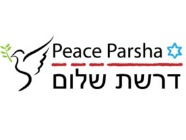by APN's Summer Intern, Hannah Ehlers

Not by might and not by power,
but by spirit alone shall we all live in peace.
I can still remember as a young girl sitting on the sun-stained carpet of our synagogue’s makeshift music room and allowing my shy, quiet voice to rise with the voices of the other children surrounding me. Our childish, out-of-tune voices sang of our love of God, the Earth, and one another. Debbie Friedman’s song, “Not by Might, Not by Power” became my Sunday school favorite and, when I was brave enough to speak up, I requested it and shouted “ruach!” as loud as I could at the right time.
Debbie’s song references Zechariah 4:6, when God tells the prophet Zechariah to tell Zerubbabel to do things, “Not by might, nor by power, but by My Spirit,” as he leads the first group of Jews in the province of Judah who have returned from Babylonian exile. As a young girl, I connected deeply with Jewish values like Tikkun Olam (repairing the world) and Gemilut Chasadim (loving kindness) that were reinforced in song each week. I took pride whenever I was able to apply these values in my life. Even as a child, I knew that, despite the senselessness and terror in the world, these progressive values were not naïve and should never be swept aside even, and especially, in times of crisis.
We sang too, of course, of our love for Israel, a love instilled in song, prayer, worship, and in tradition and history. When I thought of Israel as the Jewish homeland, thousands of miles across the ocean, I thought of a nation that acted and solved problems “not by might, not by power, but by spirit,” by ruach, by breath, by speaking as God did when God created the Earth.
The events of this past week, including the tragic death of three Israeli teenagers by Palestinian kidnappers, served as a stark counterpoint to my youthful synagogue days and of Friedman’s song-filled wisdom. I was particularly reminded of her song and its meaning when reflecting on this week’s Torah portion. Balak (Numbers 22:2-25:9), involves a talking donkey and a non-Israelite prophet named Balaam. Balaam is eventually killed by the Israelites when they “put Balaam, son of Beor, to the sword” in Numbers 31:8.
When commenting on Balaam’s death, Rashi references Zechariah 4:6. Rashi considers Balaam’s death by Israel’s sword to be the reverse of what Jews are supposed to do, which is to use God’s spirit, rather than military might, to overcome. Balaam’s death provides an opportunity for us to remember the use of force should be the absolute last resort; that diplomacy is morally superior to military action. This is “Spirit alone.”
Since its founding, the modern State of Israel has been stuck in a cycle of violence. At many times in its short history, military action and war have been necessary to protect the citizens of Israel and ensure Israel’s survival. However, Israel has at times used excessive military force, which has pushed it farther and farther away from peace and security. The recent news in Israel of the death of Eyal Yifrah, Gilad Shaar, and Naftali Fraenkel is heartbreaking. The killing of innocent children and civilians is never justified; no political cause or territorial dispute can ever justify terrorism. On a gut level, it is completely understandable that the immediate reaction to the tragic killings of three of our young men is to seek revenge and retaliation. Still, it is important and morally imperative that the Israeli government and its citizens not let their understandably immense grief and anger overflow, and react in ways that will only breed more violence down the road.
Ten days into Operation Brother’s Keeper, five Palestinians had been killed, including 15-year-old Mohammed Dudin. Now, the operation over, there has been continuous rocket firing from Gaza into Israel, and retaliatory strikes into Gaza. Blood for blood is a morally dubious -and over the long term- ineffectual strategy. No long term, secure future can be created by revenge. On Monday, Israel’s Prime Minister Netanyahu promised “revenge” for the blood of the boys. Blood for blood is not the answer. Yes, the perpetrators of this heinous crime must be brought to justice, but violence only begets more violence, particularly when there is no viable peaceful, diplomatic alternative.
If there is even one voice willing to listen, one out-stretched hand ready to work towards a better, peaceful future, Israel must engage. And there are many voices for peace. Israel’s government must defend its citizens, and is therefore justified in fighting terrorism. But as it does, it must also pursue all options for peace. With them, it must recreate a political horizon for Israelis and Palestinians alike. Just last week, outgoing President Shimon Peres stated that Mahmoud Abbas is “the best partner Israel has ever had” for peace. Israel must also be a partner for peace, willing to choose diplomacy and to freeze settlements instead of proposing new ones, as Defense minister Ya’alon did Tuesday in response to the teens’ murders. The peace process will never be easy; it will always be painful and imperfect. But if Israel truly focuses on peace, it can prevent the further suffering of Israelis, Palestinians, and all of our children. If we work to make it happen, it can be true that “not by might and not by power, but by spirit alone shall we all live in peace.”